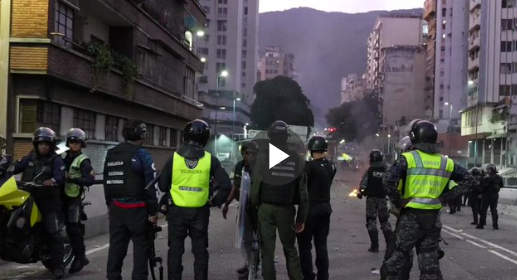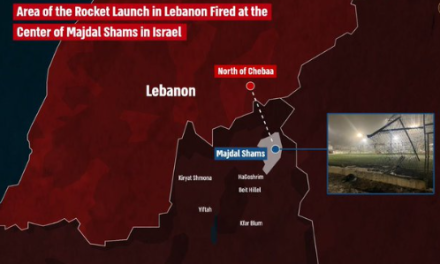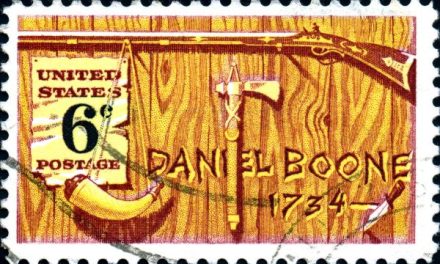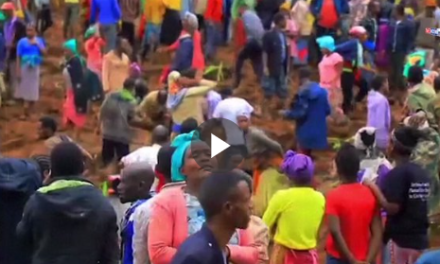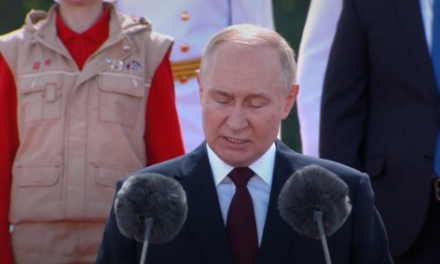The stolen election in Venezuela is making the nation even more volatile. If the Venezuelans were still armed, this would now be open revolution and the tyrant Maduro would soon be flying to another nation to save his life.
Chaos erupted as security forces used tear gas and rubber bullets against protesters challenging the disputed election results. On Monday, thousands marched through Caracas, many from the city’s outskirts, voicing anger after President Nicolás Maduro declared victory. The opposition, however, claimed their candidate, Edmundo González, had actually won with 73.2% of the vote, contradicting Maduro’s announcement.
🚨🇻🇪INJURIES IN MARACAY AS PROTESTERS CLASH WITH POLICE
Several Venezuelan protesters were injured in Maracay.
People are reportedly fighting in the streets against the election results.https://t.co/GtfVydJUlc https://t.co/BpWk30y0QU
— Mario Nawfal (@MarioNawfal) July 30, 2024
The lead-up to the election had shown strong support for González, who had unified opposition parties against Maduro, whose long tenure has been marred by economic decline. A significant military and police presence in Caracas aimed to contain the unrest, but demonstrators were determined, chanting calls for freedom and the government’s ouster. The protests turned violent, with scenes of burning tires and the destruction of Maduro’s images.
Government forces, including police and paramilitary groups, aggressively blocked access to key areas, attempting to prevent the protesters from reaching the presidential palace. In a bid to control the situation, the government also temporarily suspended flights to and from Panama and the Dominican Republic.
In a televised address, Maduro urged calm and accused the opposition of attempting a coup. His speech did little to calm the streets, where people like Paola Sarzalejo decried the election as fraudulent, stating that the real results were being suppressed. Her father, Miguel, expressed deep disappointment with the country’s direction, fearing for the future of the youth who face a bleak outlook if conditions do not improve.
Venezuelans Clash with Police Following Disputed Election Result. #PDNews #PDSiasa pic.twitter.com/jehJ61Ke3s
— PEOPLE DAILY (@PeopleDailyKe) July 30, 2024
Cristobal Martinez, wrapped in a Venezuelan flag, highlighted the desperation of young people who are struggling with unemployment and limited educational opportunities. He described a widespread desire for change, a sentiment exacerbated by the perceived stagnation under Maduro’s rule since the death of Hugo Chávez. Martinez criticized some older supporters of the government, suggesting they benefited from government handouts while the broader population suffered.
International responses have varied, with countries like Argentina refusing to recognize Maduro’s victory, prompting Venezuela to recall its diplomats from Buenos Aires. Similar actions were taken by Chile, Costa Rica, Panama, Peru, the Dominican Republic, and Uruguay, all questioning the legitimacy of the electoral process. The United States has called for transparency, urging Venezuelan authorities to release detailed election data.
Tear gas was deployed, and tires were set on fire as violent clashes erupted between protesters and the Venezuelan National Guard following Nicolas Maduro’s victory in the national elections
MORE: https://t.co/p2PCh486B4 pic.twitter.com/2LWvQmPeJG
— RT (@RT_com) July 30, 2024
The Organization of American States (OAS) has called an emergency meeting to address the situation, reflecting the international community’s concern. As the crisis deepens, there is increasing pressure on the Venezuelan government to provide clarity and ensure that the true will of the people is respected. Knowing that this is a Marxist inspired government, they simply do not care. They have the guns and stealing an election is normal in such dictatorships.
Major Points:
- Venezuelan security forces used tear gas and rubber bullets against protesters disputing the election results after President Nicolás Maduro declared victory.
- The opposition claimed that their candidate, Edmundo González, actually won the election with 73.2% of the vote, challenging Maduro’s announcement.
- A heavy military and police presence in Caracas sought to control the protests, which included burning tires and defaced images of Maduro.
- The government temporarily suspended flights to and from Panama and the Dominican Republic, while Maduro accused the opposition of attempting a coup.
- Several countries, including Argentina and the United States, expressed concerns over the election’s legitimacy, with the Organization of American States (OAS) calling an emergency meeting to discuss the situation.
Susan Guglielmo – Reprinted with permission of Whatfinger News
